China and Saudi among the top ten highest risk countries; shows the “prominent role” of authoritarian regimes within the global economy
A volatile mix of interference in voting processes, crackdowns on civil rights and institutional decay is fuelling a global decline in democracy, according to the latest annual release of the Democratic Governance Index (DGI) from Verisk Maplecroft.
Data from the DGI, which measures threats to electoral processes, civil and political rights and the strength of institutions in 198 countries, shows that 61 have recorded a ‘significant’ increase in risk since the Index was first released in 2017.
This trend has continued over the last year, with 11 countries witnessing a significant rise in risks, including: Afghanistan (now the 6th highest risk country globally), Russia (11th), Hungary (87th), Tunisia (100th), and Mexico (106th).
“Declines in democratic governance and slides towards authoritarianism not only affect the rights of voters, they weaken vital institutions, perpetuate corruption and affect the overall investment environment,” says Hamish Kinnear, the senior analyst at Verisk Maplecroft who led on the research.
“No system of government is immune – over recent years, we’ve seen declines on the DGI across established democracies like the US and in authoritarian states like Russia.”
The fact that China (ranked 4th on the 2022 Index) and Saudi Arabia (8th) feature among the 10 highest risk countries globally should come as no surprise, but their inclusion highlights the prominent role played by authoritarian regimes within the global economy.
They sit among a raft of totalitarian and authoritarian states at the bottom of the ranking, including: Eritrea, ranked the least democratic government globally, North Korea, South Sudan, Laos, Sudan, Brunei and Syria.
ESG implications
For organisations operating in the worst performing countries, the risk of being seen to be complicit with repressive regimes should be a foremost concern.
“Investor and consumer perceptions are hardening when it comes to human rights, while new and emerging regulations and laws are demanding greater transparency,” adds Kinnear.
“These risks can be reputational, such as when companies are subject to public criticism by media outlets, but they can also be more tangible, as was the case for the thousands of companies that divested from an increasingly authoritarian Russia following its invasion of Ukraine.”
Looking forward, a greater split between democratic states – led by the West – and authoritarian states – led by China - would also present increased risks to supply chains built during a calmer geopolitical era.
Democratic countries, mindful of earlier vulnerabilities (such as Europe’s reliance on Russian gas) may look to encourage businesses to source from other democratic countries. Trends in the DGI are worth watching to see how far this systemic cleavage could go, and whether businesses need to strengthen their contingency plans accordingly.
Democracy threatened by political interference
Access to a free and fair vote has come under increasing pressure globally, with 37 countries experiencing negative shifts on the pillar of the Index that measures the integrity of the voting process for the most recent election.
However, democratic governance is not only about ballot boxes. Negative shifts on the DGI can also be triggered when leaders undermine the separation of powers within a country, in turn weakening institutional checks on the power of the government.
This is the case in Tunisia, where president Kais Saied used a creative interpretation of the constitution to suspend parliament and seize wider judicial, legislative and executive powers last year. Saied codified his power grab into law in July 2022 with a referendum marred by poor turnout.
This centralisation of power has seen Tunisia fall 21 positions to 100th highest risk country on the DGI, with only Afghanistan and Haiti registering a larger uptick in risk year-on-year.
Tunisia’s downward trajectory in the index is likely to continue, according to the researchers, as a new electoral law hobbles the ability for coherent opposition parties to form after legislative elections scheduled for December 2022.
Attacks on judicial independence can also occur when leaders gradually appoint allies to prominent roles within key institutions.
For example, in Mexico (ranked 106th, down from 120th last year), the appointment of several government-friendly Supreme Court justices has raised concerns about the court’s diminished autonomy under president López Obrador (AMLO).
AMLO’s recent proposal to overhaul Mexico’s electoral system, which sparked mass pro-democracy protests, could also see the country’s ranking deteriorate even further.
Yet another example of democratic backsliding is offered by Hungary, which moved from 88th to 81st highest risk country on Verisk Maplecroft’s Judicial Independence Index – an indicator for the DGI – between 2021 and 2022.
This was the result of the ruling Fidesz party tightening its control of the judiciary through the appointment of several Orbán loyalists to both the Supreme and Constitutional Court.
Democratic freedoms under attack
Societies that are freer and more open are more likely to be democratically governed. The erosion of civil and political rights, therefore, is another key driver of risk in the DGI.
Indeed, of the countries that have had a significant increase in risk in the Index since 2017, 75% also experienced a similar shift on Verisk Maplecroft’s Freedom of Assembly Index, which measures violations of the right to peaceful assembly.
55% of countries with a significant increase in DGI risk have also experienced a significant increase on the Freedom of Opinion and Expression Index since 2017.
For many countries this is the result of an authoritarian turn. Nowhere was this more evident than with the return of Taliban rule in Afghanistan, the 6th highest risk country on the DGI, down from 35th last year.
At the same time, Russia’s fall from 19th to 11th highest risk country on the DGI has been driven by a clampdown on protests and the Kremlin’s tightening control of the media in the wake of the Ukraine war.





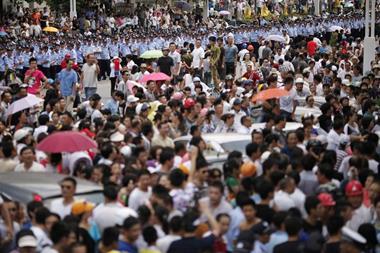

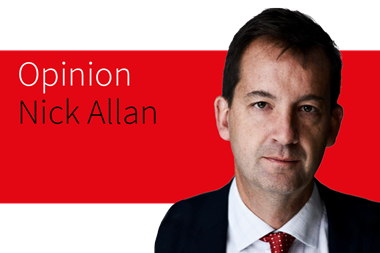
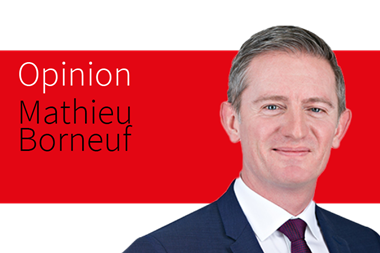
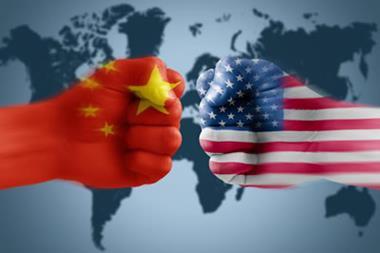
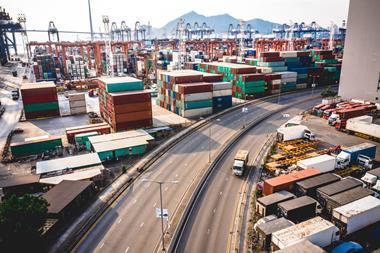









No comments yet